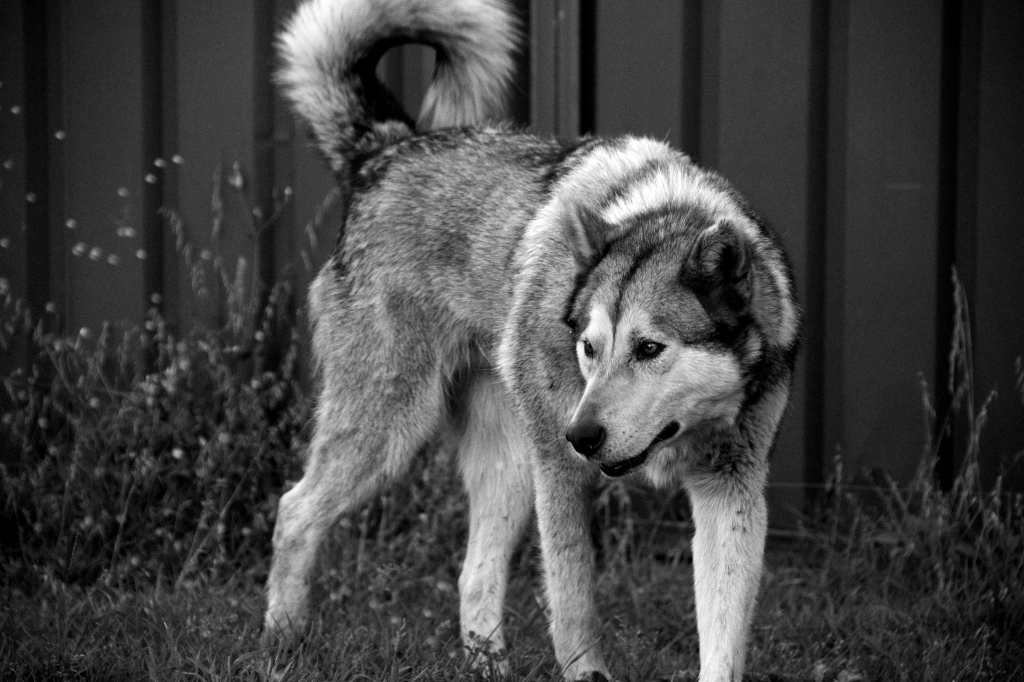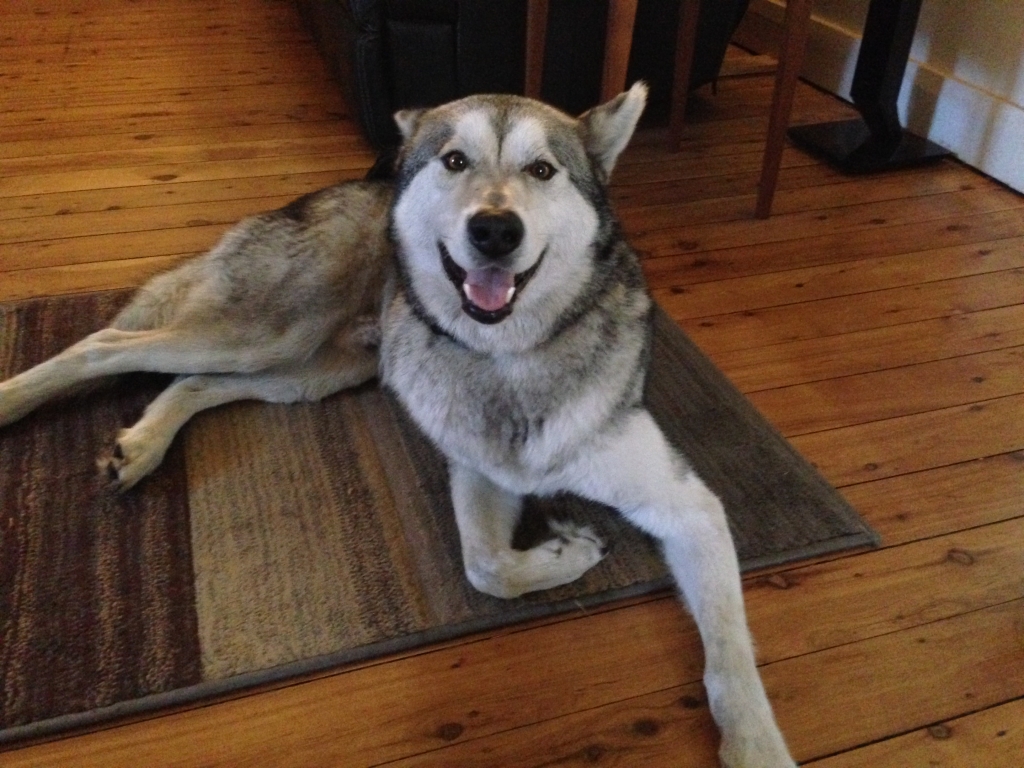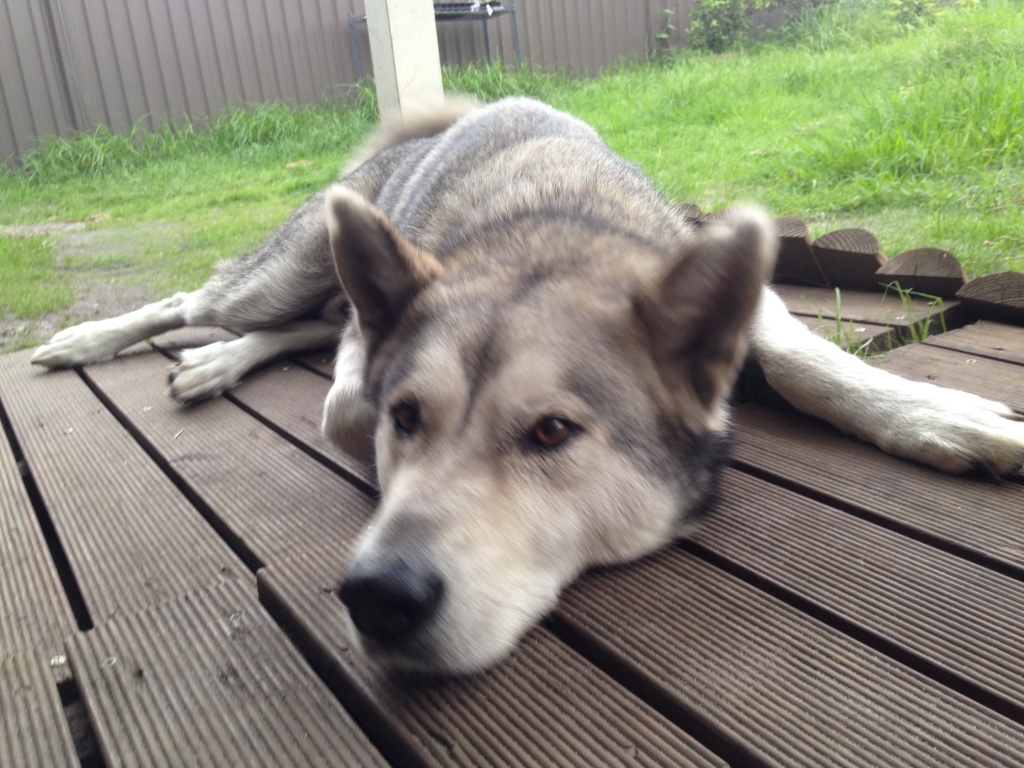Want a Siberian Husky?
Of course you do, they’re beautiful; the piercing eyes, thick and cuddly fur…
Plus they look like a wolf which is just cool, right? So here are 10 things you should know before adopting a Siberian Husky.
Like any new pet the Siberian Husky comes with its own set of requirements and needs in order for it to remain a content and loveable member of the family. Because of this many are put up for adoption simply because new owners are not aware – or cannot cope – with the demands of their new pet.
Although each individual dog is different, and some of these may not apply to every dog out there, here are ten things you should consider before purchasing your new Husky.
1. Cuddles, cuddles and even more cuddles
All dogs are pack animals but with a husky it is all the more evident. You and your family are your dog’s pack. Attention and interaction within this close-knit group is what a Siberian Husky yearns for most.
Expect to be greeted at your front door with a wagging tail and an abundance of cuddles and licks. It doesn’t stop there. They will want to sit on your lap, snuggle beside you and follow you around as much as possible; anything they can do to be near you and feel the love.
Make sure you have enough time to provide your husky with the interaction it needs. A Husky is not the best choice if you are away from home for more than eight hours a day, although having another canine companion may help.
2. Follow the Leader
As with any pack there needs to be a leader(s).
Your Siberian Husky will respect and follow a leader as long as it knows who that person is. From a young age you and other members of the family will need to display and assert your authority as boss. Your dog will also need to understand that it is lower in the pecking order than any other human member of the household, including children.
But huskies are stubborn. They will do what they want to do… when they want to do it.
As such it is not uncommon for a husky to challenge its position in the pack. It may attempt to disobey a command or try their luck in breaking the rules – and kick up a fuss when you tell them otherwise.
It is essential you do not allow this behaviour to go unchecked otherwise you may find your husky ruling the house and, with strong territorial instincts, this could lead to serious problems down the road.
3. Other Pets
Siberian Huskies are friendly and generally get along with other dogs (although they may want to ensure they are higher in the hierarchy of the pack.)
They have a strong predatory nature which means other small pets such as birds, mice, hamsters and (especially) rabbits may not be a good combination. Even if other pets are secured in cages or tanks expect your husky to become fixated and rarely leave them alone.
Integrating a husky with smaller pets is possible but should be done at a very young age and with ongoing supervision.
4. Climate
Siberian Huskies come from the arctic conditions of their namesake and areas with cooler climates are best. If you do live in a warmer area your husky must have access to suitable amounts of shade, air conditioning and water as the heat can cause serious health problems.
5. Living Space
Siberian Huskies are independent and inquisitive animals. They need an area in which they can roam around and explore. If you live in an apartment, or plan to keep your new pet as a ‘house dog’ a husky is probably not for you.
They have powerful back legs and can jump to impressive heights from a sitting position so you will need to make sure their living space is surrounded by tall fences – 6ft is a good measure. They are also superb escape artists – they’d give Houdini a run for his money – and they like to dig so their enclosed space should be adequately cheap propecia us secured both above and below ground.
6. Exercise
Originally sled dogs, Huskies have bundles of energy that need to be burned every day. If they have a small area at home they will need regular walks and exercise otherwise boredom and destructive behaviours may come about.
They can make ideal jogging partners and will probably have enough energy to continue long after you’ve collapsed into a sweaty heap. In warmer temperatures their need for exercise considerably declines and any form of rigorous exercise should be avoided.
7. Off the Lead
If you want a dog you can let off the lead in the park, run about with on the beach or play fetch with… good luck!
Huskies are notorious for having little to no recall when out in unfamiliar areas and it is advised, unless you are in a secure and enclosed area, not to let your husky off the lead.
It is not that they are disloyal, or do not love you, but when out and about a husky becomes fixated with new smells, sounds and the chance of exploring. This is where their independence, stubbornness and nomadic behaviours really come into play.
No amount of calling or whistling will get their attention and don’t think for a moment you can chase after them. Huskies can run fast…
Really fast.
8. Noise
If you’re looking for a pet to fill your home security-officer position a husky would be a far from ideal choice.
Although a wolf-looking guard dog may seem imposing huskies rarely bark, if at all, and their friendly temperament means they are more likely to become friends with an intruder than scare them away.
What they lack in barking Huskies make up for in whining/ howling sounds we husky owners know as ‘talking’. Be prepared to have some considerable one-sided ‘discussions’ with your husky especially when seeking attention, playtime or food.
They also howl. It may not be at the full moon but it is their way of communicating so do not be surprised if your husky ‘communicates’ with car and house alarms, birds and even sirens (fire trucks seem to be their favourite).
9. Eating
For such an energetic dog you would think a husky would eat you out of house and home. In reality they can get by on relatively little.
They are also fussy eaters and may go several days turning a nose away at meals. This is completely normal and it’s best to reply with tough love. There is no need to switch foods or try and entice them with fancy additions. Simply continue to feed them at a normal hour and they will eat when they are ready. I told you they were stubborn!
Huskies can also have sensitive guts. In the wild they would consume a diet of meat and bone from the animals they hunt so, when choosing food for your husky, stay away from foods containing grains, vegetables and added fillers and preservatives otherwise you are restricting the amount of beneficial nutrients.
You may have to spend a little more money on food but it will save on vet bills down the road.
10. Grooming
Huskies require a medium amount of maintenance when it comes to grooming and a regular brush will normally be enough. Yet twice a year expect to become well acquainted with your vacuum cleaner.
In loosing, or preparing to gain, their thick winter fur a Husky will ‘blow’ its coat. Be ready for a fluffy explosion as huge clumps of fur quite literally blow off your dog. Your house, clothes and garden will look like a blizzard has struck and it will get everywhere, even if your dog lives outside.
During this time your husky’s coat will need extra attention and you may find yourself with brush in hand several times a day. This ‘blowing’ may last for a few weeks, so be prepared to leave the house each morning with enough hair over you to make a sweater!
So, do you have what it takes to have a Husky? Or perhaps you already have one and have other tips you can share for potential owners?



